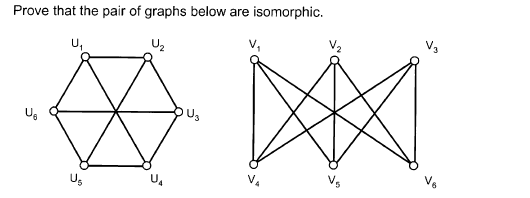
isomorphism [ahy-suh-mawr-fiz-uh m] ExamplesWord Origin noun
- the state or property of being isomorphous or isomorphic.
- Mathematics. a one-to-one relation onto the map between two sets, which preserves the relations existing between elements in its domain.
Origin of isomorphism First recorded in 1820–30; isomorph(ous) + -ism Examples from the Web for isomorphism Historical Examples of isomorphism
A subgroup of a group G, which is transformed into itself by every isomorphism of G, is called a characteristic subgroup.
Encyclopaedia Britannica, 11th Edition, Volume 12, Slice 6
Various
Moreover, the isomorphism is simple unless for one or more operations, other than identity, the sets all remain unaltered.
Encyclopaedia Britannica, 11th Edition, Volume 12, Slice 6
Various
In this case H would contain a self-conjugate subgroup, and the isomorphism is multiple.
Encyclopaedia Britannica, 11th Edition, Volume 12, Slice 6
Various
The following table shows where isomorphism may be generally expected.
Encyclopaedia Britannica, 11th Edition, Volume 6, Slice 1
Various
In the first case the isomorphism is spoken of as simple, in the second as multiple.
Encyclopaedia Britannica, 11th Edition, Volume 12, Slice 6
Various
British Dictionary definitions for isomorphism isomorphism noun
- biology similarity of form, as in different generations of the same life cycle
- chem the existence of two or more substances of different composition in a similar crystalline form
- maths a one-to-one correspondence between the elements of two or more sets, such as those of Arabic and Roman numerals, and between the sums or products of the elements of one of these sets and those of the equivalent elements of the other set or sets
Word Origin and History for isomorphism n.
from German Isomorphismus, 1828, coined by German chemist Eilhard Mitscherlich (1794-1863) from isomorph; see isomorphic. Related: Isomorph.
isomorphism in Medicine isomorphism [ī′sə-môr′fĭz′əm] n.
- A similarity in form, as in organisms of different ancestry.
- A close similarity in the crystalline structure of two or more substances of similar chemical composition.
Related formsi′so•mor′phous adj. isomorphism in Science isomorphism [ī′sə-môr′fĭz′əm]
- Similarity in form, as in organisms of different ancestry.
- A one-to-one correspondence between the elements of two sets such that the result of an operation on elements of one set corresponds to the result of the analogous operation on their images in the other set.
- A close similarity in the crystalline structure of two or more substances of different chemical composition. Isomorphism is seen, for example, in the group of minerals known as garnets, which can vary in chemical composition but always have the same crystal structure.
 Liberal Dictionary English Dictionary
Liberal Dictionary English Dictionary